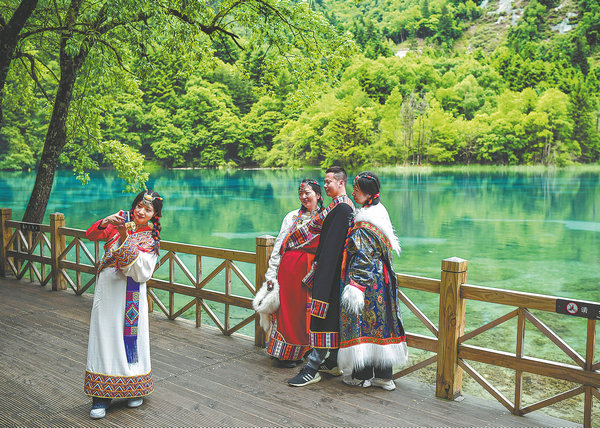Meeting plans route to boost tourism


"Sports programs have certain technical thresholds, but once consumers master these skills, they are likely to engage in repetitive consumption," she says.
"Sports tourism can also be a strong force to drive sales of related consumer goods."
Jiang has noticed that many consumers may purchase skiing equipment and travel to ski resorts when winter comes.
She points out that more attention should be paid to how to transform sports venues into carriers for the integrated development of sports, culture and tourism after hosting major events, so as to continuously satisfy the needs of sports enthusiasts.
She calls upon various regions to establish a sports events hosting mechanism and differentiate sports programs to continuously attract tourists.
"Attention should be given to the diverse needs of nonprofessionals and consumer groups such as women and families with children," Jiang says.
Zhang Bo, deputy director of culture and tourism bureau of Yantai, East China's Shandong province, shares the city's experiences in increasing its high-quality tourism product supply and stimulating consumption potential.
Yantai was the first city in Shandong to propose advancing the marine cultural tourism industry chain, according to Zhang Bo.
In addition to launching policies to enhance incentives for greater consumption, distinctive culture and tourism scenes have been created to boost travel spending.
"Yantai has 1,000 km of coastline and hundreds of islands, and we have launched products by leveraging these advantageous resources," Zhang Bo says.
They include bird watching and night tours of the islands, he adds.
Sea tours integrating sightseeing, leisure, accommodation, catering and learning have also been developed.

































